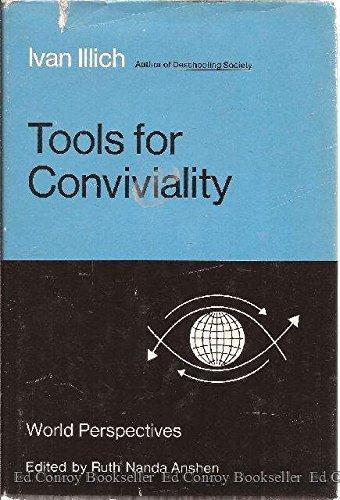Erwan Corvander reviewed La convivialité by Ivan Illich
très intéressant dans la théorie, mais parfois un peu daté
4 stars
Ce petit opus cherche à définir les conditions d'une utilisation plus humaine de la technique.
Il est très intéressant dans son analyse de la situation de la technique, et notamment de la manière dont le progrès technique n'a rien d'un progrès humain en tant qu'il prive les gens de leur capacité à exprimer leurs propres capacités en les remplaçant par celles déjà prêtes, mais soumises au contrôle d'élites technocratiques. J'en retiens notamment la notion qu'Illich développe de" monopole radical", c'est à dire la situation ou par son efficacité une technologie empêche qu'on utilise les autres (par exemple les infrastructures automobiles qui se développent jusqu'à l'extinction des trottoirs, rendant impossible la marche à pied).
L'ouvrage n'apporte pas de modèle de réponse, se contentant de définir le type de limites qui seraient à mettre en place pour l'avènement d'une société conviviale, et insistant sur le fait que ces mesures doivent être débattues …
Ce petit opus cherche à définir les conditions d'une utilisation plus humaine de la technique.
Il est très intéressant dans son analyse de la situation de la technique, et notamment de la manière dont le progrès technique n'a rien d'un progrès humain en tant qu'il prive les gens de leur capacité à exprimer leurs propres capacités en les remplaçant par celles déjà prêtes, mais soumises au contrôle d'élites technocratiques. J'en retiens notamment la notion qu'Illich développe de" monopole radical", c'est à dire la situation ou par son efficacité une technologie empêche qu'on utilise les autres (par exemple les infrastructures automobiles qui se développent jusqu'à l'extinction des trottoirs, rendant impossible la marche à pied).
L'ouvrage n'apporte pas de modèle de réponse, se contentant de définir le type de limites qui seraient à mettre en place pour l'avènement d'une société conviviale, et insistant sur le fait que ces mesures doivent être débattues politiquement. C'est agréable de laisser la porte ouverte, et de considérer que la réponse doit être politique, et non pas "à dire d'expert", ce qui serait contradictoire avec son discours.
Attention tout de même, certaines opinions sont clairement datées, son analyse que la chine maoïste est le seul pays où une société "conviviale" puisse se mettre en place est assez gênante ; certes on est en 1973 et la réalité de la révolution culturelle n'était pas encore connue partout, et ce qui lui a succédé lui a largement donné tort. Ses convictions malthusiennes peinent aussi à convaincre dans le sens où la croissance infinie de la population qui l'effraie ne semble plus être considérée comme un scénario plausible par les démographes, nonobstant les effets du changement climatique qui s'annoncent (et qu'il voit comme ce qui forcera la civilisation à abandonner la technique de manière violente, ce qu'il souhaite éviter).

